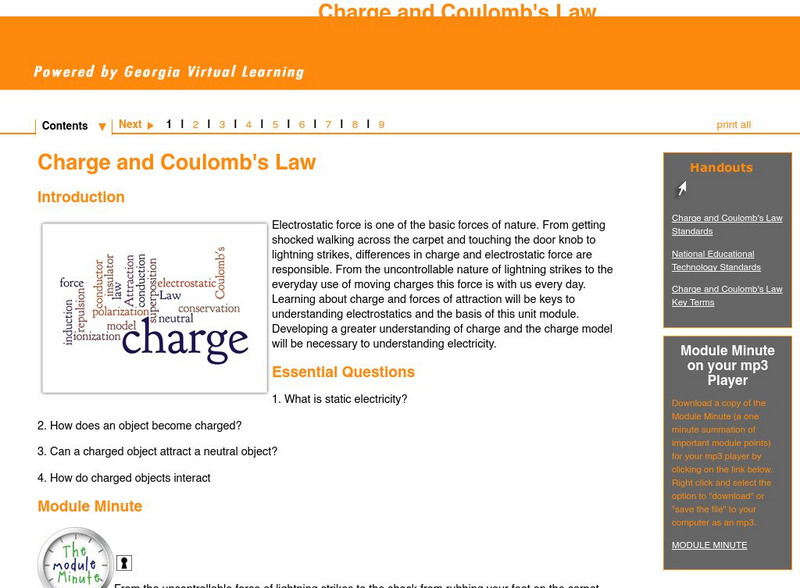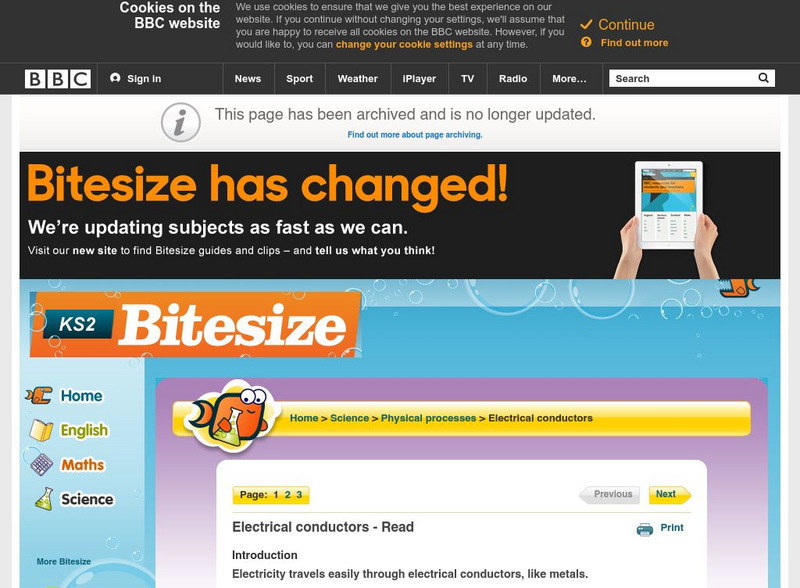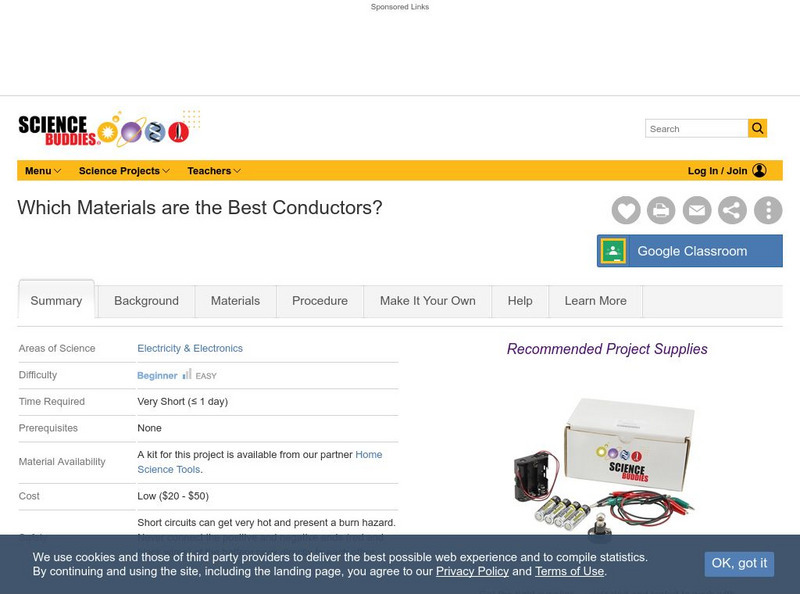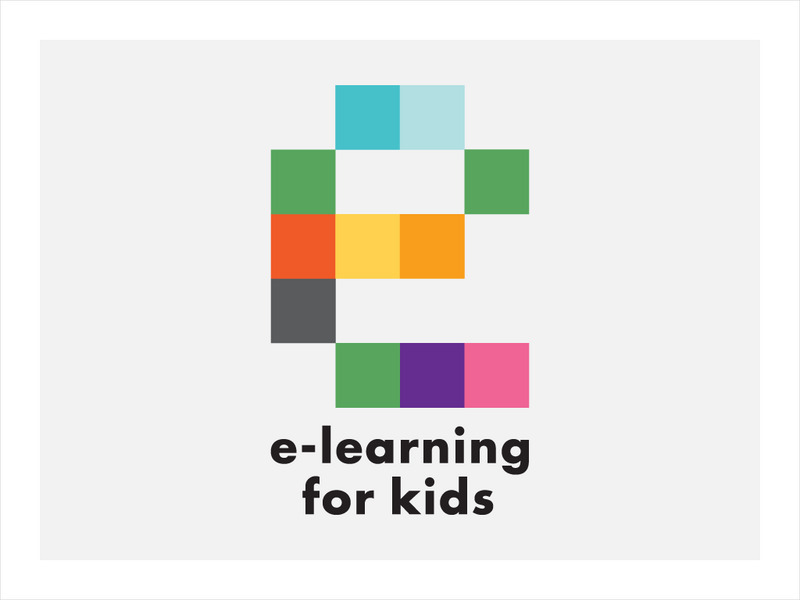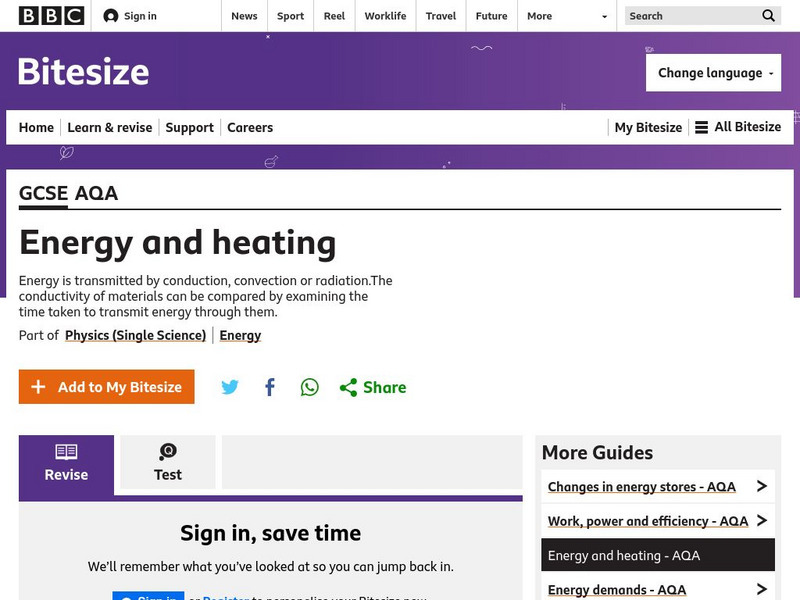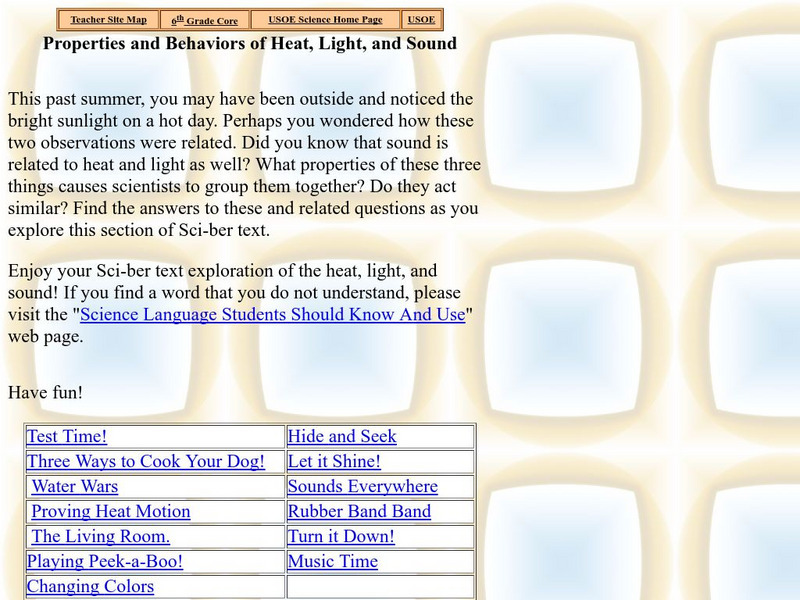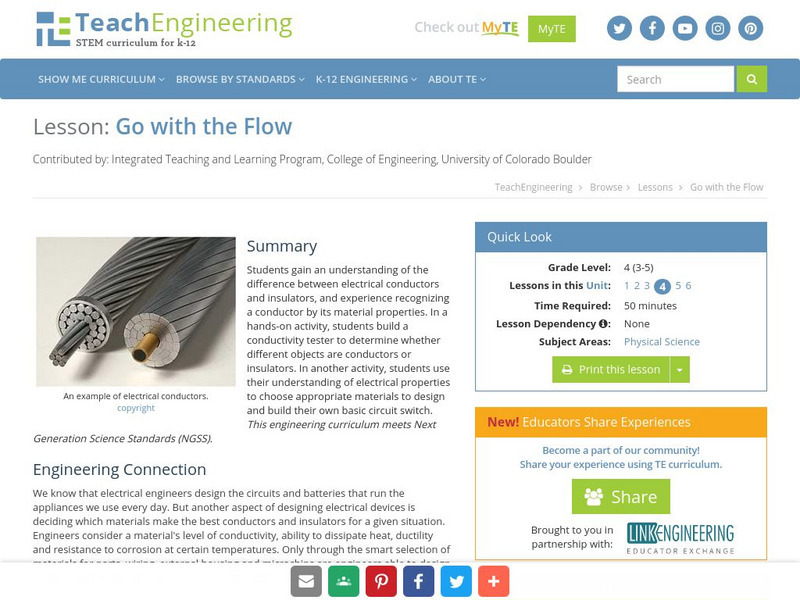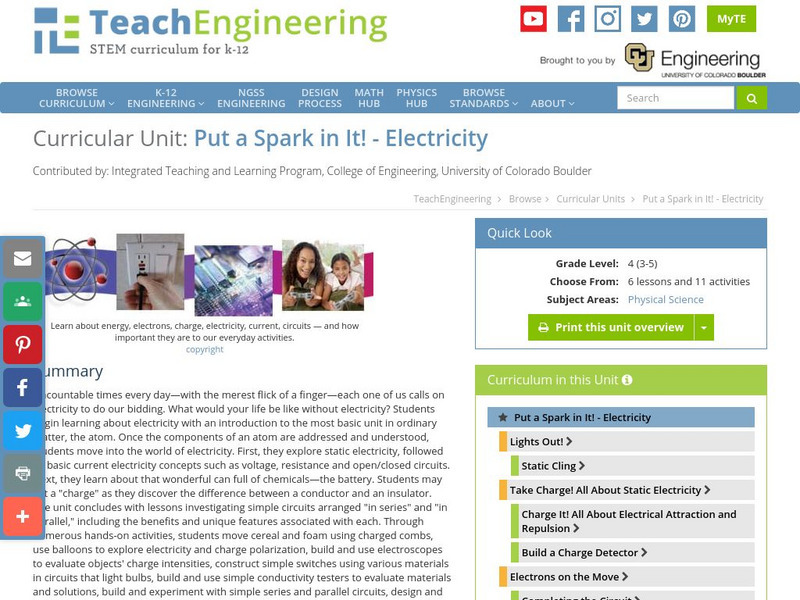Hi, what do you want to do?
Other
The Blobz Guide to Electric Circuits
An exciting interactive site of games, activities, information, and quizzes about electric circuits. You'll learn what makes circuits work, all about conductors and insulators, switches, changing circuits, and circuit diagrams. Learning...
BBC
Bbc Schools: Ks2 Bitesize: Science: Physical Processes: Electrical Conductors
Find out which material will save Steve from getting shocked by the electric eels. Following the activity, read more about electrical conductors, and then take a quick quiz to check for understanding.
American Chemical Society
Middle School Chemistry: Heat, Temperature, and Conduction
Students observe, describe, and draw a model on the molecular level, showing how energy is transferred from one substance to another through conduction.
Georgia Department of Education
Ga Virtual Learning: Charge and Coulomb's Law
Learning about charge and forces of attraction will be keys to understanding electrostatics and the basis of this learning unit. Developing a greater understanding of charge and the charge model is necessary to understanding electricity.
BBC
Bbc Schools: Ks2 Bitesize: Science: Physical Processes: Electrical Conductors
A review of electrical conductors and insulators, with diagrams, activities, and quiz questions.
Science Education Resource Center at Carleton College
Serc: Lighting the Way: Electrical Circuits and Lamp Wiring
Through a series of self-guided activities, students will explore basic electrical circuits and then build a working model of a circuit through the process of wiring a lamp. They will understand the flow of electrons through a circuit,...
ClassFlow
Class Flow: Circuit Conductors
[Free Registration/Login Required] This unit builds on children's previous practical experience of making circuits and extends their understanding of circuits, conductors and insulators and the need for a complete circuit in order for a...
TeachEngineering
Teach Engineering: Conductivity
Students make a simple conductivity tester using a battery and light bulb. They learn the difference between conductors and insulators of electrical energy as they test a variety of materials for their ability to conduct electricity.
BBC
Bbc Schools: Ks2 Bitesize: Science: Materials: Keeping Warm
Easy-to-understand overviews, with illustrations, a game, and quiz questions, about thermal conductors and insulators.
Science Buddies
Science Buddies: Project Ideas: Which Materials Are the Best Conductors?
A simple science fair project to test whether electricity can flow between two things. The Science Buddies project ideas are set up consistently beginning with an abstract, objective, and introduction, followed by a section on terms,...
E-learning for Kids
E Learning for Kids: Science Underwater City: What Are Good and Poor Conductors of Heat?
John and Jessi are going underwater, and they need to stay warm. Help them learn about conductors of heat so they can stay warm.
BBC
Bbc: Gcse Bitesize: Energy and Heating
Energy is transmitted by conduction, convection or radiation.The conductivity of materials can be compared by examining the time taken to transmit energy through them. This lesson explains how conduction works and provides a link to a test.
Canada Science and Technology Museum
Canada Science and Technology Museum: Background Information for Electricity
The Canada Science and Technology Museum answers some of the most common questions about electricity. For example, get the definition of electricity, the difference between alternating and direct currents, and learn how a fuse works.
Utah State Office of Education
Utah Science: Properties and Behaviors of Heat, Light and Sound
How can scientists lump heat, light and sound together when investigating properties and behaviors? This learning module will address that question through a series of activities.
ArtsNow
Arts Now Learning: Using Dance to Explore Electricity [Pdf]
After analyzing examples of conductors and insulators, 5th graders will work in small groups to craft a dance that depicts an electrical current and how it is affected by a conductor or insulator. Students will present their dances to...
TeachEngineering
Teach Engineering: Go With the Flow
Learners gain an understanding of the difference between electrical conductors and insulators, and experience recognizing a conductor by its material properties. In a hands-on activity, students build a conductivity tester to determine...
PBS
Pbs Learning Media: Balloon Charging Lab
Explore the behavior of electrons in conductors and insulators in this interactive simulation.
Science Education Resource Center at Carleton College
Serc: Investigating Testing for Electrical Conductivity Using Materials
In this activity, students will understand that electricity moves through different circuits and discover what types of materials are conductors and insulators.
TeachEngineering
Teach Engineering: Put a Spark in It! Electricity
Uncountable times every day "with the merest flick of a finger"each one of us calls on electricity to do our bidding. What would your life be like without electricity? Students begin learning about electricity with an introduction to the...
TryEngineering
Try Engineering: The Power of Graphene
For this engineering lesson, students learn about nanotechnology, graphene, and its electrical properties and applications. Teams of students test graphene to determine whether it is an electrical conductor or insulator, then develop...
ClassFlow
Class Flow: Turning on the Lights
[Free Registration/Login Required] In this lesson students learn the parts of a circuit, build series and parallel circuits, learn about insulators and conductors, and more in this interactive multimedia flipchart.
South Carolina Educational Television
Know It All: Understanding Electricity | Nasa Online
If you want to understand electricity, you first need to know a little about matter, atoms and electrons.
Science Education Resource Center at Carleton College
Serc: Elements Metals, Nonmetals and Metalloids
Students investigate several properties of the given elements and decide whether each element is a metal, non-metal, or a metalloid.
TeachEngineering
Teach Engineering: Build a Charge Detector
In this hands-on activity, students explore the electrical force that takes place between two objects. Each student builds an electroscope and uses the device to draw conclusions about objects' charge intensity. Students also determine...








